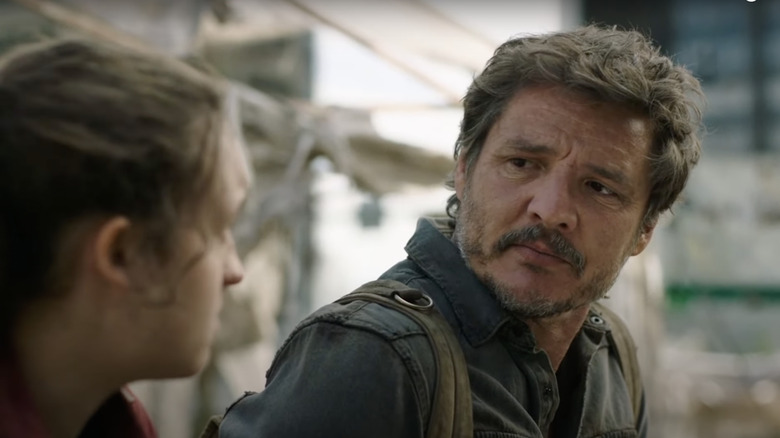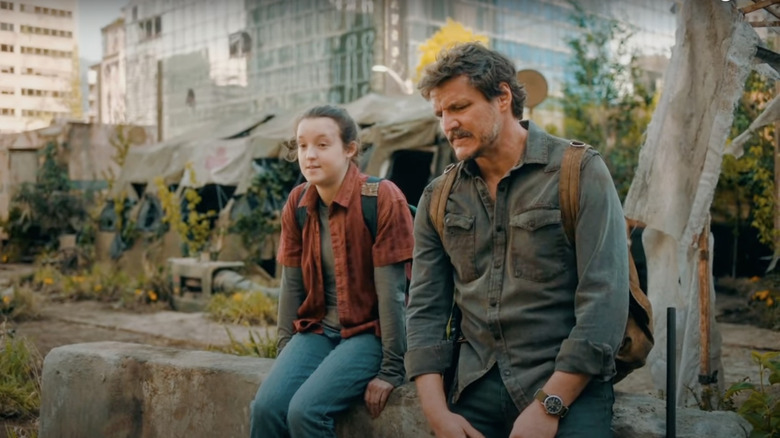The Last Of Us TV Series Creator Got To Direct His Favorite Scene Of The Show
One of the best things about being a creative who also happens to be a big fan when adapting a significant work is getting to put your own mark on already established characters. You know, add a little bit of your special sauce into the mix.
What HBO's "The Last of Us" did so well is give the game's fans the moments they craved to see brought into live action while also taking radical left turns from time to time. The Frank and Bill episode is a perfect example of this. It's drastically different than anything we experience in the game, but truth be told, it's actually way more meaningful.
This keeps the fans on their toes because they kinda know what's coming next, and they kinda don't.
A small moment that was added to the story is one of the most emotionally impactful. Throughout the entire run of "The Last of Us," Ellie and Joel have come to depend on each other and forge a real bond. They start distrustful and cold, closing themselves off as a survival mechanism in this fungus zombie-infested post-apocalyptic hellscape, but ultimately find a true, loving father/daughter connection with each other. Despite their growing bond, the characters' difficulty communicating openly with each other persists, that is until one particular scene. That's what we're here to talk about.
Co-showrunner Craig Mazin got to direct the first episode of "The Last of Us," and when asked by The Hollywood Reporter about the scene he's most proud of from that first season, his answer was a little surprising, in that it comes from the final episode, which he didn't direct. Well, not entirely.
'It wasn't time that did it'
Turns out that episode's director, Ali Abbasi, came down with COVID-19 and had to quarantine for some days, so Mazin filled in while he was recovering. It was during this stretch that he directed what he considers his favorite scene in the series:
"It's the scene where Joel reveals to Ellie why he has that scar on his head. She says, 'Time heals all wounds.' And he says, 'It wasn't time that did it.' I'm particularly proud of that scene because, first, it's simple — it's two people talking, which is my favorite. They're not even moving when it gets really good, so everything else goes away and it's just about their connection. And I'm so proud of the performance that Pedro and Bella delivered in that moment. It was also the third-to-last day of shooting, so it was the culmination of a calendar year of shooting and the culmination of the work that they had done with each other as professionals, but also as human beings. It was so real and it was so beyond. I just love it."
Mazin calls this scene simple, but that's a little deceptive. A lot is going on here, precisely because the two characters don't pour their hearts out to each other. Neither would do that. But both do open up a little bit, just enough so it's clear how much they mean to each other.
This crucial scene sets us up for the controversial finale of the series and the video game it's based on, so that we understand Joel's headspace and why he can't possibly walk away. The reason why "The Last of Us" was such a monster pop culture hit isn't because of the cool zombies; it's because of deceptively simple scenes like this.

